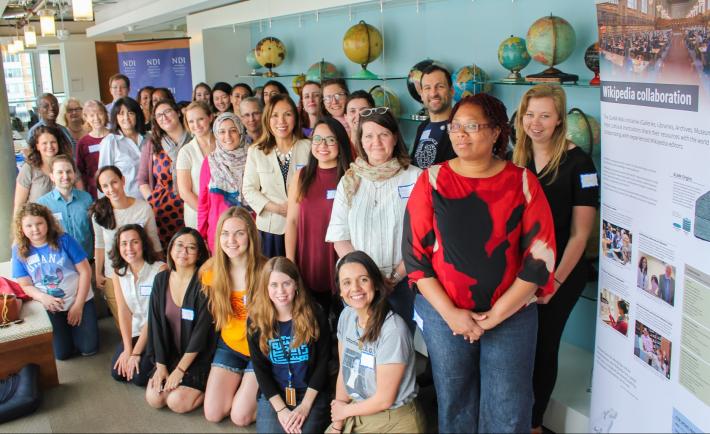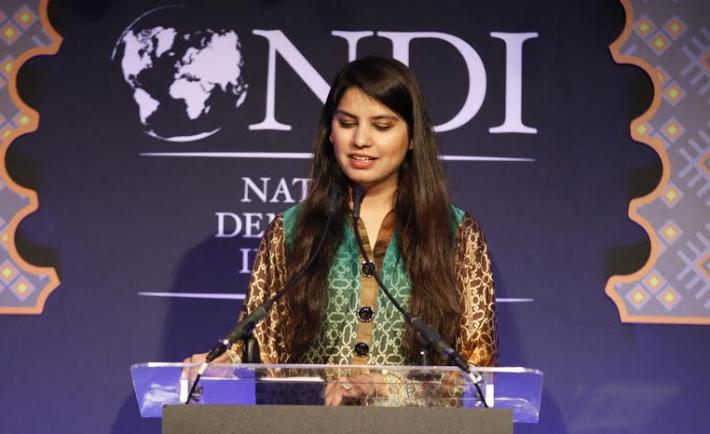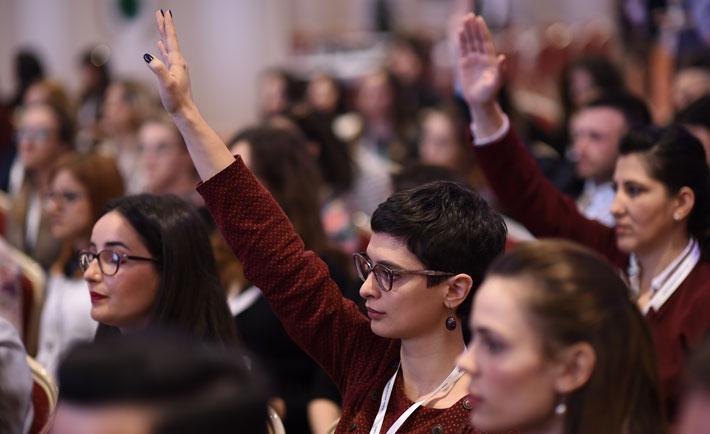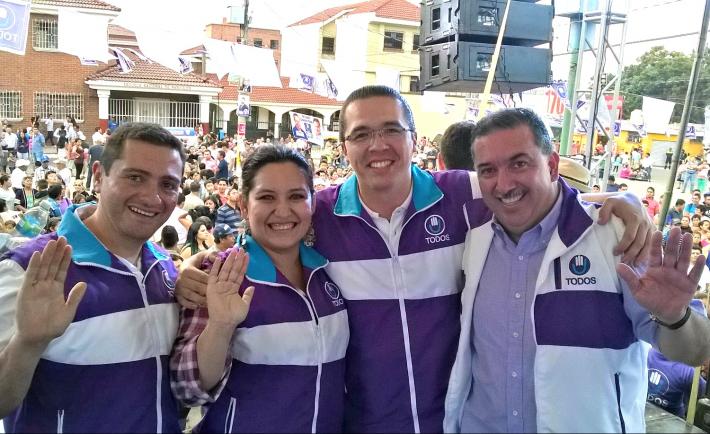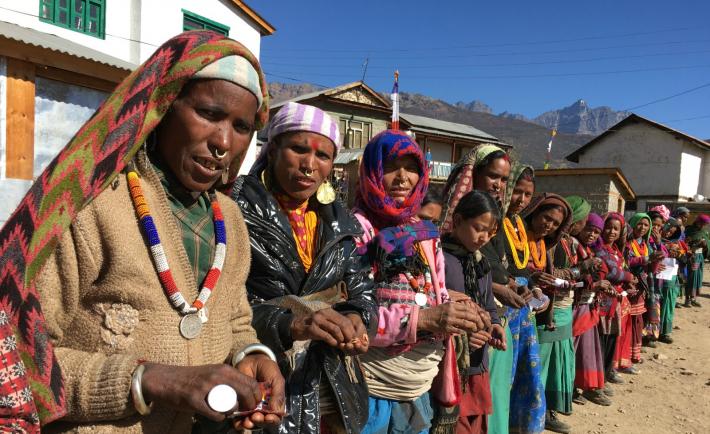“What will people think of us when they look back and find that in 2017, Wikipedia only had 16.97 percent of its biographies about women? They’ll say ‘shame on them,’” said Wikimedia-DC’s Rosie Stephenson-Goodknight at NDI, Wikimedia-DC and the Women’s Media Center’s first joint edit-a-thon. Wikipedia is the main online encyclopedia of our digital age. Openly sourced from the public, one might expect a nearly equal rate of women’s representation on Wikipedia—but it’s not even close. As Stephenson-Goodknight noted, only 17 percent of biographies on Wikipedia’s English site are of women, and it’s an even lower number on most of the site’s other 295 languages.
Mind the Gap: Highlighting Women's Representation on Wikipedia
Naija Women on the Rise: Making Every Voice Count
_1_0_0_0_0_0_0_0_0_0_0.jpg)
2017 Andi Parhamovich Fellow, Ashley Dauda, with NDI Chairman and former Secretary of State Madeleine K. Albright at NDI's annual MKA Luncheon.
I recently attended a conference on ‘the Political Economy of Gender and Women’s Empowerment in Africa,’ organized by the School of Advanced International Studies at John Hopkins University. Gretchen Bauer, a Professor of Political Science and International Relations from the University of Delaware, held a presentation on the global ranking of women’s representation in national parliaments. As Bauer passed through the slides of her presentation, I didn’t bother to look for Nigeria since I already knew where we stood on the list globally: 181 out of 191—the lowest in Africa.
Women’s Political Equality in Pakistan: Not an Impossible Mission
How did I come to understand what has become my mission in life? Well, I come from a social context in Pakistan where, like in all developing countries, women’s vision and committed approach to a practical life goes through tough challenges. It can even start within a woman’s own family. Fortunately, my family stood by my ambition of joining social work as a profession.
Needing A Longer Runway: Inspiring Young Women’s Political Engagement
Take a moment to reflect on what you wanted to become when you were eight years old—which, if you are a woman, was when you were at your most confident. How did that change by the time you turned eighteen? For those who were (or are) aspiring politicians, you might be interested to know that research in the U.S. says girls are equally politically confident—for example, in running for class president and student councils—as boys until high school, when it drops by half. NDI’s Gender, Women and Democracy team has taken on the task of finding out what this political confidence gap looks like on a global scale and, more importantly, how to address it.
Helping Women Parliamentarians Wage Peace in East Africa
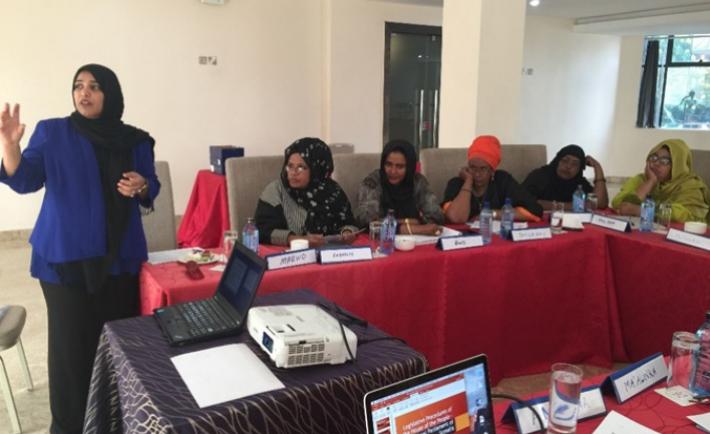
Hodan speaking on the role of women in peace and development processes in Somalia at the Peace, Security and Development in the Horn of Africa Conference on December 8, 2016 in Nairobi, Kenya
Somalia has been at war with itself since 1991, and my family fled the country at the peak of the civil war that year. Over the course of the following decade, I lived and studied in India. The civil war has left the country with many scars: political instability, insecurity, a dysfunctional government, no functioning public and private institutions, economic destitution, clan disputes and violence, the formation of terrorist groups, and piracy. So after my studies, I decided to return to Somalia to contribute to the rebuilding of the nation. But arriving in Mogadishu in 2003, nothing prepared me for the shock at the level of destruction and the suffering of my people, especially women and children.
It's Their World, As Long as They're Not Online. Young Women and Politics
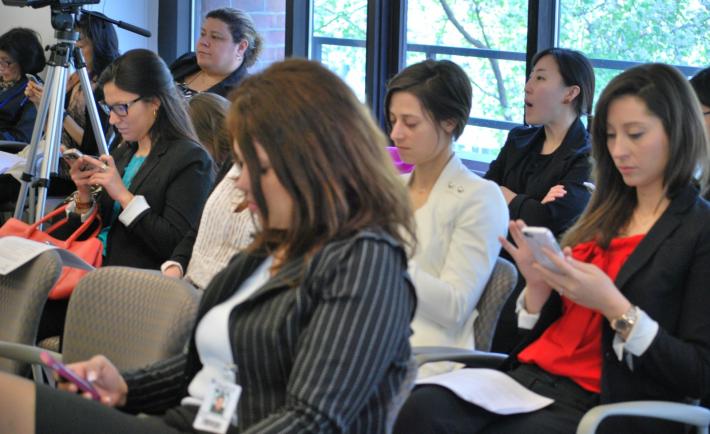
Young women are the future of politics, but we have to protect them from violence, including online.
Communication technologies are having a significant impact on the way we practice democracy around the world. Online platforms are an exciting and expanding space for citizens to gather information and voice their opinions. They offer new opportunities for politicians and their constituents to connect, and for young women and men and other new entrants to politics to cost-effectively find a voice and build their political networks. However, these platforms can also be a forum for misinformation, hate speech, abuse and harassment.
Being Bold for Change in Guatemala
In 2013, while I was working in partnership with NDI Guatemala, I became interested in encouraging more women to get involved in politics, so I applied for the Andi Parhamovich Fellowship. I proposed a project focused on increasing women's participation as decision-makers in Guatemala - a huge challenge for me considering my background was in the sciences and I was new to politics.
Through my APF project I worked on a training program to prepare female candidates, who defied gender stereotypes, for the legislative elections in 2015, but we never expected a year like that.
Developing Democracy in Kosovo, Europe’s Youngest Country
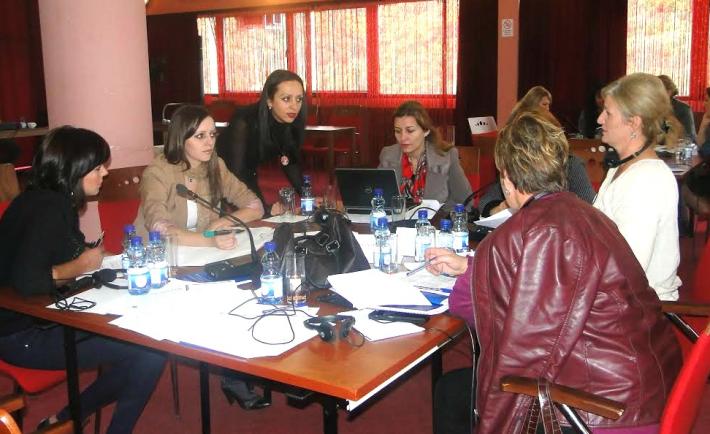
A workshop on Gender Responsive Budgeting, held in October 2012, where women councilors developed an advocacy plan and timeline for their municipality’s priority issue.
Meaningful democracy means the equal participation of women and men in political and public life.
In 1999, just after the war, I found myself back in my hometown, having spent months as a refugee in Macedonia. As Kosovo recovered, the UN and many international organizations were present to help Kosovars build institutions and capacities and to reconcile communities. I started to run the youth center in my hometown, and I had the opportunity to talk one-on-one with young people while I worked there. We were a new generation and we had gone through difficult and different experiences during the conflict, so getting together in this way was a real challenge at first.
Empowering Women in Nepal for a Better Tomorrow
Prior to my work with NDI, the term “democracy” in Nepal seemed to imply a group of leaders fighting for power, without regard to the norms and values of democracy. Democracy was not for the people, of the people and by the people, but for the leaders, of the leaders and by the leaders. This perception commonly held by political parties in my country made me think - did democracy really exist? Will future generations adopt and carry the same values that we practice in our daily lives or will they bring about changes?
Continuing an Interrupted Legacy
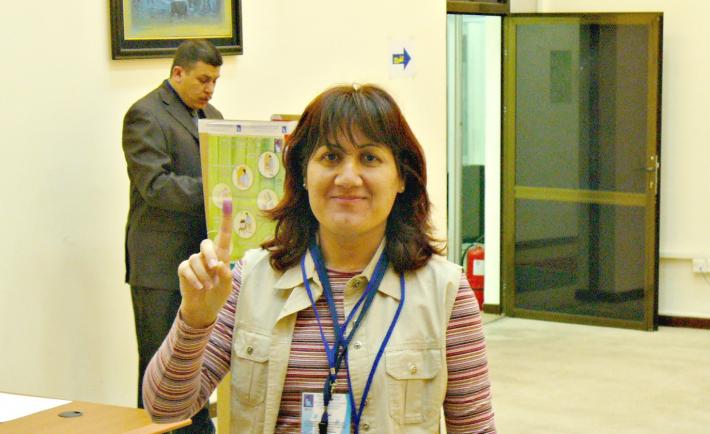
Ferdos Majeed voted in the Iraq parliamentary elections in 2005, her first time voting in a free and fair election.
Before 2003 Iraq was isolated from the world. The country possessed little knowledge of a democratic system, a functioning civil society, a multi-party political system or human rights, especially as they applied to women. As a lecturer at a large university in Iraq, I was speaking with young people every day who expressed their eagerness for freedom of speech. I kept hoping that we would have all of that one day, and I was looking to learn everything I could about democratic systems and human rights.

